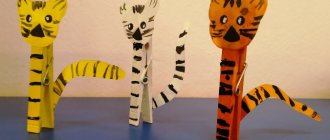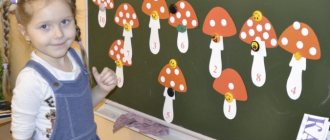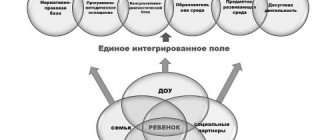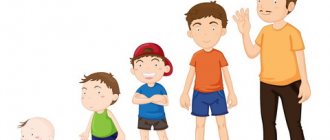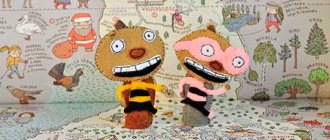Memo to the teacher: “To make the lesson interesting!” methodological development on the topic
Memo to the teacher: “To make the lesson interesting...”
To make the lesson interesting and of high quality, prepare everything you need in advance: pencils, paper, a beautiful notebook, album, etc. For a preschooler, the surroundings are very important: beautiful and new (or even better, unexpected!) objects, a comfortable place to work.
Start the lesson with intrigue: for example, with a mysterious object (I have something interesting for you!) or a riddle (guess what I prepared for you?). Imagination and ingenuity are your magical helpers that can attract children's attention! At the end of the lesson, be sure to summarize by asking the children what they did, what they liked, what they learned new. It is these questions that allow children to celebrate their achievements and realize the acquisition of new experience and new knowledge.
- The beginning of classes should be unusual, you can include a ritual.
- At the very beginning, it is necessary to calm the children, set them up to listen (listen to music, sounds in the group, sounds on the street, your breathing, etc.).
- The spirit of “discovery” should prevail in the lesson.
- The next type of activity begins with setting the problem in general form.
- Hold a pause, do not interfere with the inclusion of thought processes.
- When preparing and conducting classes, allow for variability in children’s answers.
- Do not accept children's answers without justification.
- Don't leave any answer unattended. (teach children to correct their mistakes and determine their cause).
- Remember about the development of speech in any form of activity.
- Maintain a sense of success in children.
- Return to already completed tasks.
- Instead of asking “Did you like it?” ask questions about the child’s feelings and sensations: “Who are you happy for? What upset you? What brought you pleasure, joy?”
Beginning rituals:
The beginning of a lesson should become a kind of ritual so that children can tune in to joint activities, communication, and distinguish this knowledge from others.
The ritual can be changed, but not too often.
"Magic Bell"
The teacher rings the bell, thereby attracting the children's attention.
"Magic Ball"
Children sit on chairs or on a carpet in a circle. The teacher hands the ball of thread to the child and at the same time says a kind word, or a good wish, or affectionately calls the sitting child by name, or says a “magic polite word,” etc.
Then he passes the ball to the next child.
"Friendship begins with a smile"
Children sitting in a circle hold hands, look into their neighbor's eyes and silently smile at each other.
"Compliments"
Sitting in a circle, everyone joins hands. Looking into your neighbor's eyes, you need to say a few kind words to him, praise him for something. The recipient of the compliment nods his head and says: “Thank you, I’m very pleased!” He then compliments his neighbor.
During the ritual, the teacher is with the children in a circle, sets an example, gives hints, encourages, and sets the children up.
End of class rituals
The end of classes is the end of a certain type of activity, but not communication, so the ritual should, on the one hand, show that the lesson is over, on the other, that the children are ready for constructive communication in the group and at home.
The ritual can be the same, or it can be thematic.
"Circle of friends"
Standing or sitting in a circle, everyone should take hands, shake them, look at everyone in turn.
"Friendship Relay"
Hold hands and pass a handshake like a baton. The teacher begins: “I will convey my friendship to you, and it goes from me to Masha, from Masha to Sasha, etc., and finally returns to me again. I feel like there is more friendship as each of you added a piece of your friendship. Let it warm you and not leave you.”
"Rays of Sunshine"
Stretch your hands forward and join them in the center of the circle. Stand quietly, trying to feel like a ray of sunshine.
"Rechevka"
We are all friendly guys. We will not leave anyone in trouble.
We are preschool children. We won’t take it away, we’ll ask for it.
We don't offend anyone. May everyone have a good time.
We know how to care. It will be joyful and light!
Literature: E.A. Alyabyeva “Cultivating a culture of behavior in children 5-7 years old”
Senior teacher: E.Yu. Yarkina
